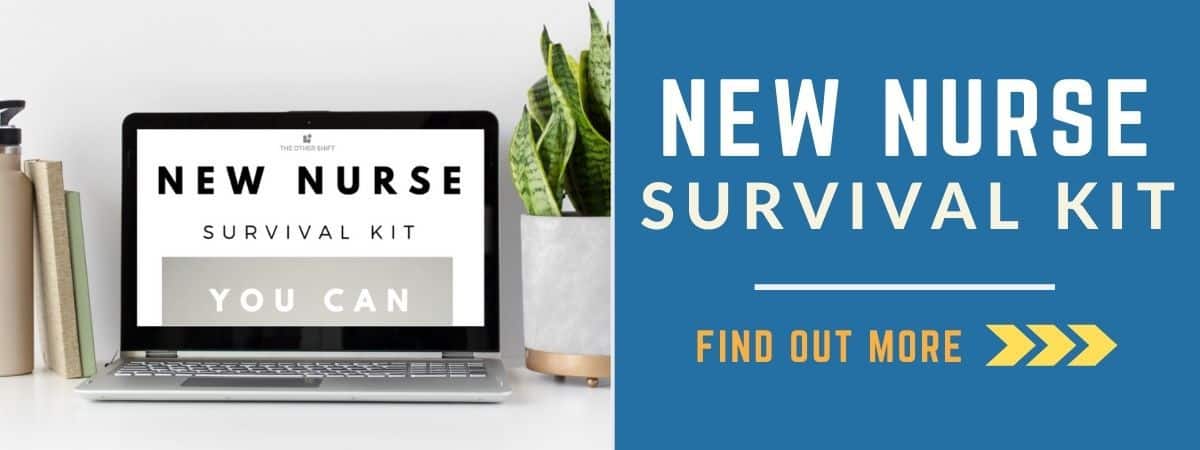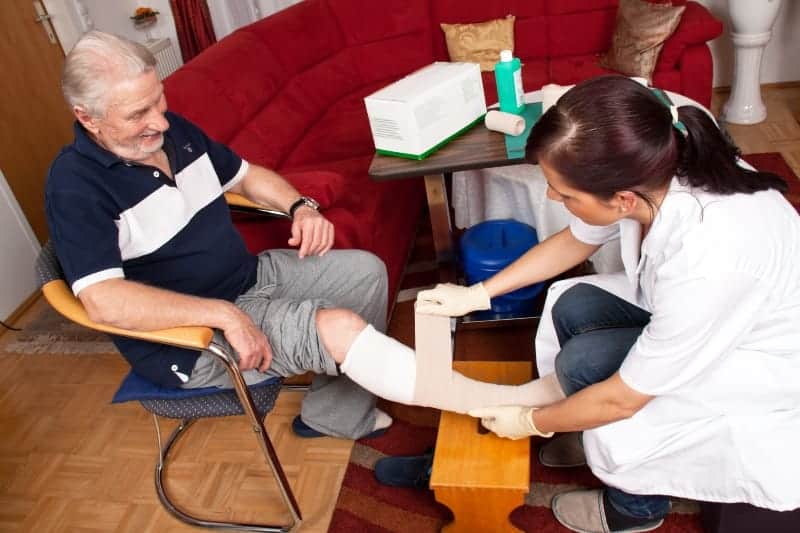Disclosure: This page may contain affiliate links, meaning we receive a commission if you decide to make a purchase through our links, but this is at no additional cost to you. Please read our disclosure and privacy statement for more info.
Travel nursing has so many advantages, but it is important to know the snags to avoid for smooth sailing ahead!
Seasoned travel nurses have seen it all – both at the bedside and in the industry. Think of travel nursing as a specialty all on its own, with its own set of skills. With that said, mastering these 7 potential traps will set you up for a successful experience as a travel nurse. And we have no doubt that one day, you will also find yourself advising the newbies on these same tips so they don’t experience what you went through!

The content within this article is supplied by our friends at The Better Nurse. Whether you are looking to become a nurse, finding your next job, or looking to expand your education and find a specialty, their expert team will guide you through the process. We hope the information below is a great start!
1. Understand the pay package
For a first-timer, travel pay is confusing! Stipends, lodging, taxes, the meals and incidental expenditure (M&IE) stipends can make understanding actual take-home pay very confusing.
First, the industry often refers to a “blended rate”. This is the total of all compensation – stipends, bonuses, and hourly wages – divided by number of weekly hours.
So your actual take-home wage may be 30$ per hour (taxable), but with lodging and M&IE your blended rate is $49.50, although those are paid monthly.
If a traveler misunderstands and thinks that the rate is $49.50 plus stipends, he/she would be in for a huge surprise.
The basic rule of thumb is to compare blended rates for a quick, overall comparison between travel nursing agencies and contracts. After this, though, you must dig deeper and consider the breakdown and taxable vs. non-taxable compensation. Keeping a “tax home”, or permanent residence that you visit at least once per year and maintain, is important for maintaining stipends as non-taxable.

2. Consider the area and cost of living
Lodging stipends can vary, and with most travel companies, the nurse will keep the balance that is unused.
Housing stipends can work two ways:
- Agency-provided housing that is pre-arranged, furnished and includes utilities.
- Tax-free housing stipend that is up to you to spend as you wish.
For the traveler who elects to find their own housing, the same amount in NYC is going to look very different in rural Iowa. Finding housing is also going to be difficult in some highly sought-after areas.
Before deciding on a contract and lodging option, the nurse should first check out local prices, and the availability of short-term housing, such as through companies like Air B&B, corporate apartments, etc. Many nurses also travel via RV – bringing their housing with them!
Related nursing article: What is Night Shift Nursing Like? An Hourly Survival Guide

3. Know your requirements and put them in writing
In general, as a travel nurse, you are expected to be very flexible, adaptable, and “go with the flow” to help the hospital where you are working. That said, some nurses have situations that they do not want to find themselves in, such as working a unit they are not comfortable with or being scheduled for more hours than wanted.
Once an assignment begins, it is much harder to tackle these issues without burning bridges or causing hard feelings. It is always best to ask questions, review the contract carefully, and add in any fine points that you need to clarify.

4. Plan ahead for the next chapter
About half-way into an assignment, you should begin thinking about the next one. It may seem stressful at first, but this way will become routine after a while.
If you have found a place you love, you might start checking into extending the contract (before the hospital hires another to take your place). If you want to move on, start thinking about your next move and looking into housing. If you wait until the last week of your assignment to start booking the next, you will find yourself with an unknown amount of downtime between assignments.
Remember, it takes time to get all of your paperwork in and find housing, and the next assignment may not begin for several weeks. Having these gaps a few times a year can really cut into the anticipated annual income of a travel nurse.
Another nursing post from theothershift.com – An Organized RN’s Essential Holiday Gift Guide For Nurses
5. Maintain a healthy lifestyle
Most nurses travel to see other places, meet new people, and gain experiences – but remember it is not a permanent vacation. Exercise and a healthy diet are still important.
Over time, grabbing takeout, going for drinks, erratic sleep and no exercise routine can add up. Choose an easy activity that can be done anywhere – such as walking, running, or biking, and take the time to pack healthy food for work. This will make you a more effective nurse and give you a sense of stability wherever you may land for the day.
One way to make sure you get enough sleep is to use sleep aids consistently. Em and Dan love blue light blocking glasses from Swanwick Sleep and eye masks from Swanwick Sleep. (But they also rave about the Manta Sleep mask).
6. Bring the right attitude – every day
Travel nursing is many things – but it is not all sunshine and rainbows all the time. Realize that you are stepping into a situation with nurses that have been working understaffed and feeling the strain. Be the person that offers to help, retains a positive attitude, and tackles whatever the day may bring. This positivity will go a long way towards forging friendships with your coworkers and learning your new job. (And learning the code to the supply closet!)
Resiliency is a key quality for successful nurses – and travel nurses are the experts. Positivity is contagious!
7. Know clinical best practices, but don’t argue policy
Travel nurses find that each hospital operates differently, with different policies and hospital culture. What is right at one location, is wrong in another. It is important to understand the difference between clinical best practices and different methods of operations. For example, one hospital may only allow a nurse one or two attempts at an IV start, while another allows more. As long as safety is not compromised and infection protocols maintained, there is no reason to worry or argue.
You may have your opinions about which way is best, but it is often counterproductive to argue those opinions. In your time spent on assignment, it is not likely that you will change the hospital policy. You can, however, maintain your own practice at a high standard, using nursing best practices wherever you go.
More nursing articles from The Other Shift;
- Tactful Tips for Pregnant and Postpartum Night Shift Nurses
- Tired of Being a Nurse? You Haven’t failed. Here’s What’s Next
- Building Confidence As A New Nurse. Steps To Success
- New Nurses: How to Stop Feeling Like An Idiot

In summary, Travel nurses are adventurous, experienced, and a welcome addition to short-staffed teams out there. We want to give nurses every chance at a fulfilling travel career with as few snags as possible.
With now knowing the potential pitfalls and with a little pre-planning, you can be on your way to an exciting and rewarding career.
We’ve written another one that I think you’ll enjoy titled, Remote Work Isolation: 9 Ingenious Ways to Feel Connected. We know working as a travel nurse is not the easiest of jobs and we want to help you feel better connected.
Cheers,
Disclosure: This page may contain affiliate links, meaning we receive a commission if you decide to make a purchase through our links, but this is at no additional cost to you. Please read our disclosure and privacy statement for more info.
Recent Posts
Any working parent knows that it is a struggle to juggle both home life and working full/part-time. But, as you know, working the night shift takes this reality to a whole new level. You're...
[This post was written by one of my clever, passionate and incredibly kind nursing friends Elle Greenwood.] “When did you start to feel confident as a new nurse?” I asked this question over...



